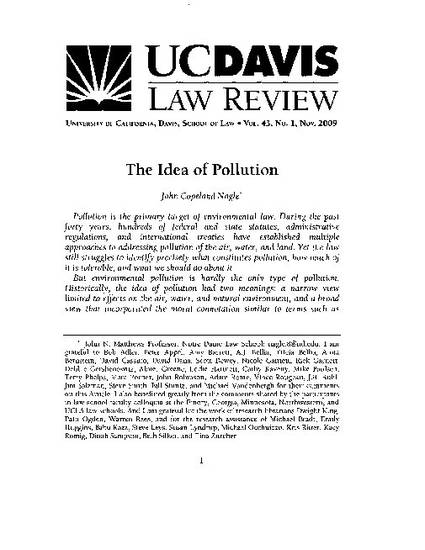
Pollution is the primary target of environmental law. During the past forty years, hundreds of federal and state statutes, administrative regulations, and international treaties have established multiple approaches to addressing pollution of the air, water, and land. Yet the law still struggles to identify precisely what constitutes pollution, how much of it is tolerable, and what we should do about it.
But environmental pollution is hardly the only type of pollution. Historically, the idea of pollution referred to a host of effects upon human environments. This remains evident in contemporary anthropological literature, which studies the pollution beliefs of cultures throughout the world. Moreover, the law responds to complaints of cultural pollution objecting to such phenomena as hostile work environments, violent entertainment, and pornography.
This article explores how the idea of pollution can help us better understand and respond to the introduction of materials into both natural environments and human environments. It reviews the historical understanding of pollution, the unsuccessful efforts to prescribe what constitutes pollution, and the social construction of both unwanted pollutants and affected environments. The article thus encourages further consideration of how the law responds to pollution claims in all of the places that are of concern to society.
Available at: http://works.bepress.com/john_nagle/89/

Reprinted with permission of U.C. Davis Law Review.